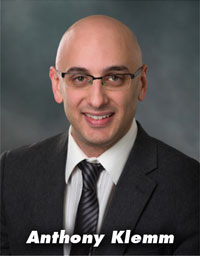
Dear Friends,
As you may have heard recently, Con Ed will no longer accept applications for new natural gas connections in most of its Westchester service area, because it does not have the capacity to add more customers.
This capacity issue may be best understood by the tragedy that occurred in Massachusetts last year, when overpressurization of a natural gas main resulted in explosions, fires, massive property damage and one fatality. An entire town had to be evacuated!
Here’s the big safety problem; as natural gas moves through pipelines during cold weather, it behaves much like the helium in a balloon and contracts. To keep the contracting gas flowing, pressure in pipelines needs to be increased. But, the aging infrastructure of the pipeline network is extremely vulnerable when pressure fluctuations happen. This situation is not going to get resolved by adding new gas pipelines.
That’s why it’s incredibly frustrating that policy makers remain so misinformed about the great potential of heating oil. Instead, they cling to the notion that natural gas or electric heat pumps are the better options for heating our homes.
The long-term expectation is that heating oil will eventually become a carbon-neutral fuel, thanks to a combination of higher bio blends, ultra-low-sulfur content and the introduction of super-high-efficiency equipment.
As a Westmore customer, you have been receiving a 20% biofuel blend since 2008. Soon, with the continuing improvement of heating oil, the carbon footprint of the fuel will be minimal and its greenhouse gas emissions negligible. The industry is on an exciting pathway to achieving this standard, which will keep heating oil at the forefront of the American energy revolution.
We hope you will keep believing in the great value, safety and eco-friendliness of oil heat — as we have always done.
Warmly,
Richard C. Bologna
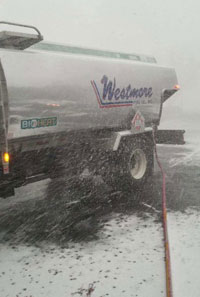
This winter, during a period of extreme cold caused by another polar vortex, we made numerous emergency deliveries to keep our customers safe and warm. And, of course, our technicians were on call around the clock to respond to other no-heat emergencies.
The bizarre weather patterns — bitter cold one week, fairly mild the next — put every heating company to the test. But we can look back and say that, by and large, we took good care of everyone. If you would like to share a winter service story, please spread the word on our Facebook page.
How do you think this past winter stacks up with others? See if you can answer these questions.
1. How cold do you think it was?
a. Colder
b. Warmer
c. About the same
2. How much snow did we have?
a. More than a foot
b. Less than a foot
c. Over two feet
Email answers by June 15 to Darren at dledoux@westmorefuel.com. All correct entries will be entered into a drawing to win a free heating service plan for one year — a value of $350.
Heating oil today is light-years ahead of where it was just a few decades ago. And the future is even brighter.
The heating oil industry continues to undergo a revolution in the advancement of its fuel — and the equipment used to burn that fuel.
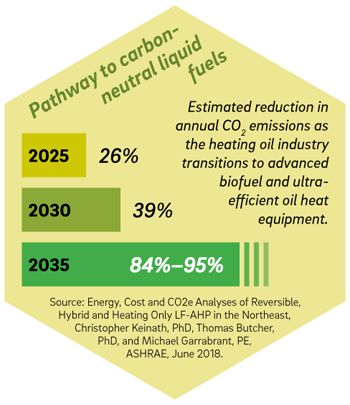
Thanks to research and development being spearheaded by the National Oilheat Research Alliance (NORA), heating oil is being made more cleanly and efficiently than ever before. The overall goal is to keep improving the quality of fuel and the efficiency of oil heat equipment. This will further reduce the carbon footprint and actually turn heating oil into a carbon-neutral energy source.
The industry is also working on the development of an oil-fired thermal heat pump, to provide more equipment options for oil heat consumers.
With all of this in the mix, it’s no wonder that NORA has raised an alarm about a push by some states to encourage conversions to electric heat. Research has shown that such “policy-driven electrification” would increase the average residential household cost, result in minimal reductions in emissions and put a severe strain on the electric grid.*
“It is premature for policy makers to consider regulating against heating oil when all liquid fuel furnaces and boilers could be run on a low-carbon alternative fuel before 2035,” says John Huber, NORA’s president. “The capability of the oil heating industry to innovate and reduce carbon emissions has not been adequately recognized.”
*Source: Richard Sweetser presentation, NORA Technology Workshop, Sept. 2018.
We talk a lot about the importance of great service. And a huge part of that is safety — for your home and property, for our staff, and for the environment.
It starts with our product. Heating oil is exceptionally stable and safe. It cannot explode — even if you drop a lit match into it. Heating oil is also much safer in the case of a carbon monoxide leak, because you will get a warning sign about a malfunction — unlike with natural gas.


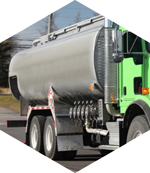
In addition, the highly refined fuel we deliver is better for the environment, because it burns more cleanly, with fewer emissions, while producing more Btu’s of heat.
Our staff is highly trained, and their training ensures careful handling and storage and protects against spills, accidents and injuries. Our team is dedicated to embracing the latest technologies and best practices in order to maintain the highest standards for health and safety.
This end-to-end commitment to safety can’t be duplicated by the natural gas utilities. Problems with gas pipelines can often go undetected, and may result in property damage. Last year in Massachusetts, a faulty pipeline led to several gas explosions and numerous fires.
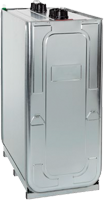
Furnaces and boilers aren’t the only types of oil heating equipment that have improved substantially over the years. There have been major advancements in heating oil storage tanks too! Here are a few things to know that will help you make good decisions about the tank on your property:
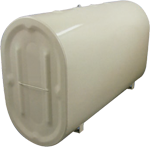
Heating oil storage tanks are strong, sturdy and durable. But, like any other piece of equipment, they won’t last forever. So if you own a tank that is more than 30 years old — whether it’s aboveground or underground — call us to start researching your replacement options. You won’t be disappointed by what’s available today!
Thanks to big increases in domestic supply, a reduction in global demand and a strong U.S. dollar, oil prices are well below the levels of a few years ago — and are expected to stay stable for the foreseeable future. The U.S. Energy Information Administration has described this as a “new normal” in heating oil prices.
While prices can fluctuate throughout the year depending on factors like the weather, supply and demand, and geopolitical events, the current outlook bodes well for the future. You can feel confident knowing that heating oil will keep you safe and warm without breaking the bank.
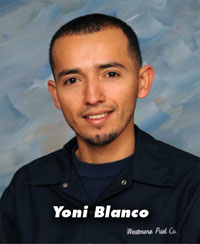
Members of our service team are often called heroes by our customers after we come through with fast, courteous and professional service. Here is one story from Margaret M., of West Harrison, New York, about how our team became Westmore heroes this winter.
It all started when our service technician Yoni Blanco responded to Margaret’s request to check her whole-house humidifier. While he was there, she asked if he would examine her water heater too.
“He was so wonderful about it and I learned a lot from him. My concern was that the hot water was no longer clear. It had a strange, off color. After looking everything over, Yoni explained that this was a sure sign that the interior of the water tank was rusted and he recommended replacing it.”
Margaret agreed, and not long afterward, our installation team arrived — right on schedule — to put in a new water heater.
Margaret says she was beyond impressed with the no-nonsense yet friendly approach of the installation team. She described it as “the Westmore psyche.”
“Whenever they come in to do anything for me in my home, I know they are there to give me the best service possible. And they did again this time, so it was another great experience. I wish the people from other companies who do service work at my home were like this. The people at Westmore are just wonderful. I don’t know how they find such great people, but they are certainly doing something right.”
Share a story about Westmore on our Facebook page before June 1, 2019, and we’ll enter you in a drawing to win 100 gallons of Bioheat®. Two winners will be chosen!

At the beginning of the year, the Westmore Customer Care team welcomed two new members: Anthony Klemm and Victoria Ayala.
Anthony joined us after serving as the office manager for a local electrical contracting company. At Westmore, this self-described quiet guy handles service orders, payments and answers billing questions.
Meanwhile, Victoria has been focused on accounts receivable. She posts all online transactions and enters the payments that we receive on a daily basis. On her lunch breaks, she enjoys exploring the local restaurant scene, and recommends Acuario, a Peruvian restaurant in Port Chester.
Both Victoria and Anthony enjoy their interactions with customers, answering questions and taking calls throughout the day. Something else they have in common? They both love their colleagues at Westmore!
“Everyone here has been very helpful and made me feel welcome from day one,” says Anthony.
Victoria concurs. “It’s like a family here — and we all work together to look after our customers. That’s why we’re all here.”
